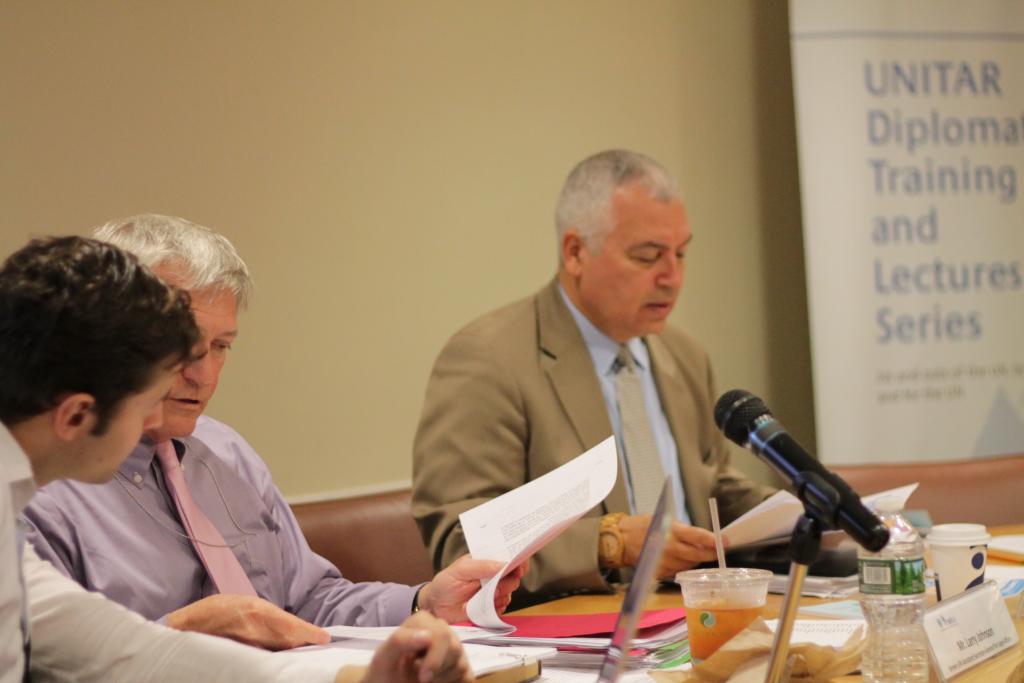UNITAR Delivers Course on UN Charter, History, and Emerging Challenges
 22 of June 2017, New York, USA - The United Nations Institute for Training and Research (UNITAR) organized a course titled “An Analysis of the UN Charter, History, and Emerging Challenges at the UN Headquarters”. The course focused on the UN Charter and its historical significant background and evolution since its creation dating back to late 1940’s. Most importantly, the panellist pointed out interesting observations concerning the UN charter, its role in the era of sustainable development and the challenges it faced when applied to societal issues. The course was divided into two sections each lead by two of our panellists.
22 of June 2017, New York, USA - The United Nations Institute for Training and Research (UNITAR) organized a course titled “An Analysis of the UN Charter, History, and Emerging Challenges at the UN Headquarters”. The course focused on the UN Charter and its historical significant background and evolution since its creation dating back to late 1940’s. Most importantly, the panellist pointed out interesting observations concerning the UN charter, its role in the era of sustainable development and the challenges it faced when applied to societal issues. The course was divided into two sections each lead by two of our panellists.
The course began with opening remarks from Mr. Marco Suazo who currently serves as the Head of the UNITAR office in New York, and emphasized the importance of the UN Charter and since its creation. The first section was led by Mr. Larry Johnson who is currently professor at Columbia  Law School and a former UN Assistant Secretary-General for Legal Affairs. This section was a comprehensive review of the history behind particular articles of the UN Charter, covering from the veto power of the Permanent Members on the Security council to the United Nations Military Staff Committee.
Law School and a former UN Assistant Secretary-General for Legal Affairs. This section was a comprehensive review of the history behind particular articles of the UN Charter, covering from the veto power of the Permanent Members on the Security council to the United Nations Military Staff Committee.
The second section was led by Mr. Navid Hanif who is currently serving as Director, Office for Economicand Social Council (ECOSOC) Support and Coordination, Department of Economic and Social Affairs. Throughout this second session, he focused on the flexibility and the adaptability of the charter. In addition, he emphasized the exchange of creativity and inventiveness in modern day issues such as the creation of the 17 Sustainable Development Goals (SDGs). Mr. Hanif also discussed the future challenges related with development and the connection between the SDGs and the UN Charter. Furthermore, all three panellists discussed how the UN charter in face revolutionized the UN from starting with 50 member states to currently bringing together 193 nations together and recognizing evolution and various forms of interpretation of the charter.
By the end of this session, participants engaged in a Q and A with the panellists with questions concerning a range of global issues, and its incorporation of the UN charter. The course concluded with closing remarks from all our panellists.
Photos: Panelists and participants

